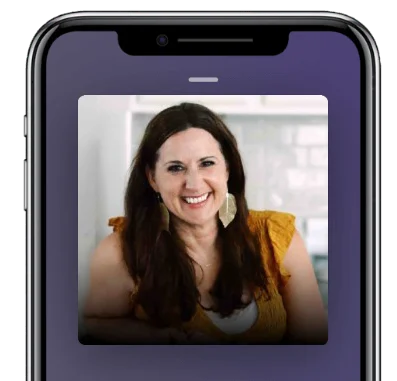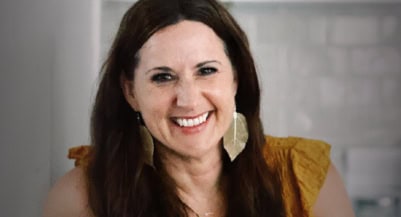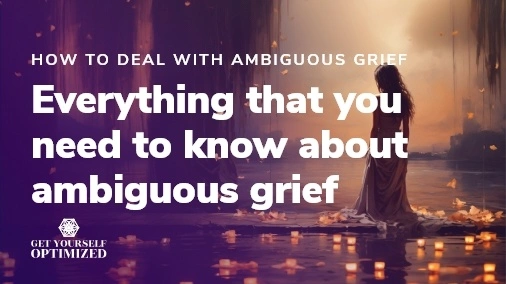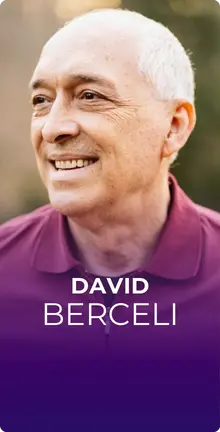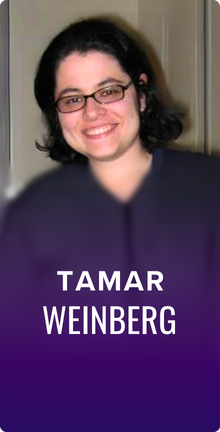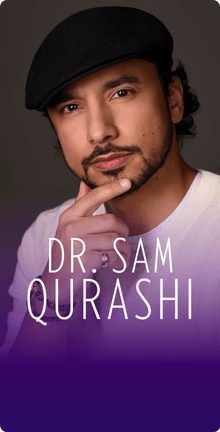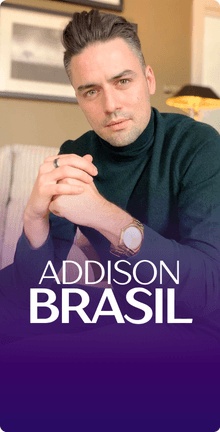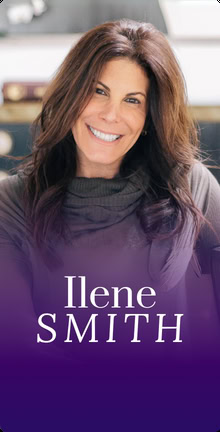In this Episode
- [02:48]Stephanie Sarazin shares her journey of writing the book Soulbroken to help others heal from ambiguous grief, a common yet misunderstood experience.
- [06:46]Stephan reflects on his past experience, including a painful divorce and feeling lost afterward, but found renewal through a Tony Robbins event.
- [09:37]Stephanie discusses grief as a portal to personal growth and focusing on internal hope and self-improvement rather than relying on external changes.
- [15:10]Stephanie reflects on her grief journey, finding the balance between honoring others’ experiences and her own healing.
- [19:40]Stephanie explains the societal norms surrounding grief, noting that ambiguous grievers often lack validation and support.
- [23:00]Stephanie discusses grief and how it can continue long after the initial loss, even decades later, and how this can be a result of prolonged grief disorder.
- [27:58]Stephanie considers postpartum depression a form of ambiguous grief, citing the loss of identity and autonomy that comes with motherhood.
- [29:35]Stephan wants to know about the spiritual root cause of postpartum depression and other experiences that result in ambiguous grief.
- [32:53]Stephanie and Stephan discuss trusting life’s unfolding, practicing gratitude, and differentiating external hope from internal hope.
- [38:35]Stephanie and Stephan discuss the concept of “up-leveling” in life, referring to the idea of moving from a black-and-white perspective to a colorful one, symbolizing personal growth and evolution.
- [46:45]Stephanie highlights her book Soulbroken and offers coaching services for individuals navigating ambiguous grief.
Stephanie, it’s so great to have you on the show.
Hi, Stephan. I’m so pleased to be here. Thanks for having me.
Yes. I have your book here, Soulbroken. I got it shortly after it came out. Hopefully, that helped your Amazon sales rankings. Soulbroken: A Guidebook for Your Journey Through Ambiguous Grief. What was the impetus for you to write this book?
I know you went through a process that gave you many lessons, eventual healing, etc. But then there was the decision to write and share the book with the world. Were those both inspired by the same event or was there some additional epiphany or something that happened?
Yeah, absolutely rooted in the same events and really a knowing that emerged almost immediately—a reluctant knowing—those annoying things sometimes that emerge deep within us and we know are true. We know what we should do and what we should do, but maybe we don’t want to do it. That was my experience. I found myself in deep grief, confused, isolated, and a mix of emotions after the end of my marriage—a marriage I loved and did not foresee ending.
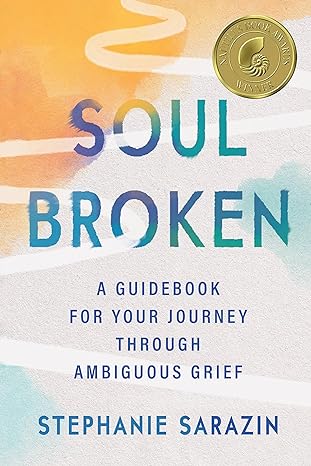
Nonetheless, after 20 years, it did. In this period of deep grief that followed, I recognized that my grief was different. I couldn’t quite pinpoint how or why it was different, but I followed my intuition. I followed my deep desire to feel better and try to intellectualize my way out of it. “If I could figure out what was different about this grief, I could heal and move forward.”
It was naive to think that I could intellectualize myself out of grief, but it was the first step in my understanding. From that understanding, I found that there are many people. In fact, it is conservatively estimated here over 70% of the population will experience ambiguous grief at least once in their lifetime. But few of us know there’s a name for it, much less how to integrate it, live with it, and heal that anguish.
The book came as a knowing. Once I unlocked why it was different, it was in tandem with the book that this was something I wish I would have known right away and wanted to offer to others.
Yeah. If you are feeling depressed, upset, or sad, and you’re unsure whether this is ambiguous grief or not, what are the hallmarks that would make it obvious to someone who hasn’t read your book?
The short answer to that is hope. This finicky, slippery experience kept popping up, and I couldn’t quite name it. I became a reluctant grief researcher through this experience because I could see that there was something in other people going through the same experience. I was grieving the loss of a loved one who was still living.
Whether they were grieving their loved one due to Alzheimer’s, dementia, traumatic brain injury, a child to addiction, a partner to incarceration, gender identity, familial or friendship estrangement. No matter what the cause, I could see that there was something that just kept popping up along with the hallmark grief experiences that we know from probably most notably from the Kubler-Ross model years and years ago—anger, denial, bargaining, depression, and acceptance.
Somebody dealing with ambiguous grief may think, “Well, I’m having a hard time because I’m going through a divorce, or because I’m estranged from my loved one,” or whatever the case is. You know that it’s ambiguous grief when you are able to identify hope also presenting as part of the experience.
You know that it’s ambiguous grief when you are able to identify hope also presenting as part of the experience.
Hope is a great thing. Hope in Catholicism is a virtue. We love hope; we need hope. I’m not dismissing hope. I want to be clear about that. However, for ambiguous grievers, I discovered through my interviews and analysis of surveys that hope for an ambiguous griever, when misdirected, can be as dangerous as good because it puts our attention on something we can’t control. And that’s the loved one we’re grieving.
Right. We can’t get to a place of closure because you know the adage, “When one door closes, another door opens,” but you get your foot in the door that’s trying to close so that you can open the new one and enter a new chapter in your life. You’re holding on to something that is not likely to turn into a divorce that turns into a remarriage with that same partner. You push off into the distance, your true soulmate, who is meant for you, because you can’t close that door yet. You’re prolonging the agony and not stepping strongly into your future.
Absolutely, well said. You say that from a place of, it feels like, experience to me.
Yeah, of course. I believe that the 70% number that you gave is probably under-representing. I went through a divorce that was quite painful in 2008-2009. I went two and a half years without a single date after that, and I was a mess.
Thankfully, three people told me to go to a Tony Robbins event I wasn’t aware of. I didn’t know anything about him. It was seemingly not coincidental that three people within a week of each other would tell me, “Wow, you’re in bad shape. You need to go to this Tony Robbins event. It’s in Chicago, just a few hours drive away. Go to this thing.”
I went. Thankfully, it started me on a journey of rediscovering myself and rebooting my life. I had no idea I was going to walk on 2000-degree hot coals on my bare feet on the first night. I was scared out of my wits, but then it was the metaphor for my rebirth.
If I can do that without getting burned, without even a blister, I can certainly get LASIK, I can get a hair transplant, I can change my diet, I can do all these different things. That ambiguous grieving process that I went through, where I couldn’t really process the situation well and the loss of that marriage. I didn’t ask for a divorce. It was my wife at the time.

What an incredible gift to look back, thinking if that version of me saw what I would become, who I would marry, what kind of life we’d have, and the child we’d have together. I’m just like, “That’s crazy. I would not be sad at all.”
We can’t really see into the future, most of us at least. Some of us are psychic, I guess. You’re grieving something that is an illusion because that marriage was not good. It was full of dysfunction, and I wasn’t looking at it.
Thanks for sharing that, truly. Kudos to you for recognizing the divine timing of three individuals coming to you in the same span of time and saying, “This is something you should look at. You want to consider this.”
Once upon a time, I would have said, “Oh, that’s crazy. How wacky. Isn’t that weird?” I really try not to use that language anymore because, through my experience of grief, I’ve been broken open in a way that is more aligned with my greatest and highest self. I’m living in a space now where I just have a different view of the world than I did prior.
We're here to remember who we are and experience the lessons we came here to learn. Share on XWhat is so wonderful about it is that I thought I had a wonderful life. By all accounts, I did. All the boxes were checked, and things were going great. Meanwhile, I didn’t know that, speaking of illusion, I was living in an illusion and not fully aware of the goings on in my own marriage.
In discovering that, I faced a daunting choice that I didn’t know how to process, much less what to do next. When you talk about going into that feeling of despair when your marriage ended, it makes sense because our egos are so attached to our comfort in the lives we’ve created, moving into the unknown and moving into something we don’t want.
It’s just so difficult. And yet, if we allow it, I have learned that grief of any kind can be a portal to our greatest and highest self if we let it. So often, we don’t let it because it hurts. It’s so painful.
We find ourselves in situations where we wouldn’t be walking on fire that we wouldn’t have before. But again, what divine timing for you and what a deep bow for you to do that hard work and find yourself where you are now. It sounds like it was probably worth it.
Yes. As you said, it’s divine timing. For somebody, that sounds like a platitude for some of our listeners. How I see it is that our lives are fully scripted by ourselves in collaboration with God and our guides. Then, we live that out as if we are the star of a movie, like we’re Truman in The Truman Show. And we forget that we did this, so we’re acting it out as if we have no clue.
I use the same very similar analogy. It’s like I’m the main character of my own video game. We are all the main characters of our own video games. The goal is to level up, jump over these obstacles, and face these obstacles, not cower in a corner or take the ladder down and hide.
In my mind, I’m a Gen Xer, so the image of the old Atari game Pitfall! comes up, or Donkey Kong. Barrels are being thrown at us, and we’ve got to jump over those. We’ve got to grab a rope and swing across quicksand. There are a lot of metaphors associated with grief because if we’re staying in our grief too long or focused too much on what I call external hope, hope in ambiguous grief is a double agent. She works both sides.
I love that. All of that’s so brilliant.
When we’re focused on external hope and how to change our loved one, “Well, gosh, maybe if I lose 10 pounds, my wife will see me differently. I’m going to change for her. Or maybe if there’s new research coming soon, and I donate to Alzheimer’s and start researching breakthroughs, there will be a cure for my parents soon.”
We’re putting our hope in those other places, and it feels good because we feel like we’re being proactive. However, we’re placing our hope elsewhere instead of turning that hope into ourselves and saying, “Maybe if I started exercising, I would feel better about myself.” It’s not doing it for another person. It’s not waiting for another person to change.
I encourage anybody in grief to take a look at what is in their control.
As I was writing the book and interviewing people, I came across a quote from Epictetus, who says, “When our hope is placed on things out of our control, when we are trying to control things that are not ours to control, we spiral.” Obviously, that’s not verbatim. But he says, “When we’re doing this, we cannot grow ourselves.” See that which is in our control and harness that.
I encourage anybody in grief or looking to level upright in this game of life to take a look at what is in their control. If we can look at life through that lens, to your point, divine timing might be a term that sounds hokey to some, and I understand that. Others who have had so many synchronicities happen they’re probably looking at life through this lens, or they’re about to, and they can say, “Aha, oh, I see, that was happening for me. And what do we want to do with it?”
Yeah. It’s happening for you and by you because your higher self wrote that script for the movie.
If we want to take it further, we’re co-creating with the universe. We’re engaging in what some call sacred contracts. Here in the United States, we don’t do grief very well. We all know we’re going to die. That’s no surprise to your listeners.
We’re all going to die, and we’re not immortal. And yet, even though we know we’ll likely be grieving people we love, we don’t do it so well. It’s not something most people are comfortable with. What I learned when I was trying to find my way out of my pain. I wasn’t on a noble quest to help others at this point. I was just trying to figure out how to feel I wasn’t crawling out of my skin, feel I could trust the world again, and get out of bed.
I started looking at what other cultures do and how other cultures grieve. That led me to Costa Rica, where I sat with shamans for a week in a plant medicine ceremony. In that experience, I came to understand the concepts of co-creation in a way that I never could have had I not lived this new life had I not needed to find the answers.
We’re co-creating with the universe. We’re engaging in what some call sacred contracts.
Yeah. What a gift.
It’s such a gift. If you had told me six, seven years ago, “Oh, this grief is a gift, and grieving the loss of somebody who’s still alive is such a gift,” it would not have been a nice response. I would not have had any time for such foolishness. “I’m in pain. I just need to feel better. And what do I do?” It is a gift.
As I was writing the book and interviewing people for the book, I was always struck trying to find a balance, Stephan. That balance between honoring somebody else’s grief and where they are, their grief experience, and not having my pom-poms up too high to say, “I’m so excited. You’ve got the opportunity to level up. This is an opportunity. What are you going to do with it? This is the Donkey Kong barrel coming your way.”
Or the magic mushroom that’s going to make you Super Mario.
Fantastic. Literally, magic mushrooms. What are you going to do to feel better in a way that isn’t numbing, in a way that is healing? Certainly, plant medicine, Ayahuasca, is not for everybody. For me, that was an opportunity to get into my subconscious, peek through the veil for multiple nights in a row, purge, and understand in a way that you can’t quite explain.
What was the epiphany about co-creation that you got from plant medicine?
Some people call it a vision, and I call it my experience. I was observing it while also in dialogue with the universe, and I think it is probably the best way to say it. These experiences, when I think about them, they almost look like a home movie, like an old-time movie you might pop in and watch.
Some people call it a vision, and I call it my experience.
It is that we are all here to level up. We are all connected. We are all a part of this ecosystem of earth. Gary Zukav, a tremendous teacher of mine, calls it the Earth School. If we can look at this life experience as a place where we are to learn, we’re not here to make the most money, accumulate the most toys, and consume the most food. We’re here to remember who we are and achieve the lessons we came here to learn.
In my Ayahuasca experience, I saw what my lessons were. I left that experience five years ago, understanding what was next for me and why. One of those things was writing this book.
I write about this, I think, in chapter six. The name of the book, the title of the book, Soulbroken, came from night one of my Ayahuasca ceremony. Ayahuasca is all about purging that which is no longer necessary for us emotionally, physically, all of it. We have buckets where you’re vomiting. Some people don’t vomit, and some people vomit all night long. I was in the camp of the latter.
I would have guessed that.
No fun. At the very end, I felt such a warm embrace and heard distinctly in my ear, “You are not heartbroken. You are soulbroken. Come back tomorrow.” I understood then that soulbroken is this feeling of anguish that is onset by the loss of an important relationship, a relationship in which we feel inextricably linked, one that we see as identifying for us.
Ambiguous grievers grieve without validation, without witnesses. Grief needs witnesses. When our grief is witnessed, our love and our loss feel validated. We don’t have the societal norms that widows have. I felt like a widow. Perhaps you felt like a widower, but who is bringing you casseroles? And saying, “Oh, my gosh, he’s lost his wife. Let’s circle him and love him.”

People with divorce don’t have the opportunity to eulogize their loved one as though we would have had they died or to receive condolences from others in a way that says, “Gosh, I see your loss, I see your pain, I know that comes from love, and I’m here for you. You’re better off anyway. What a jerk!” It’s not because people are bad. It’s because we don’t know what to say to people who are grieving, especially if we can’t even understand that their grief is grief.
Or even worse, “I could have told you this ages ago, but I didn’t. I just saw the writing on the wall when you proposed to her.” Not helpful at all.
Not helpful. That’s not something we would say had you lost your loved one in a tragic accident. Nobody would say, “I saw this coming, that behavior.” We say all these different things because we don’t recognize that people are grieving.
Again, other cultures do ceremonies and rituals so much better than we do. That’s something I encourage people to explore. If you’re grieving the loss of a loved one, and you’ve not been witnessed in your grief. Your grief hasn’t been validated because there’s no funeral, no eulogy to give, no scholarship fund to start, no headstone, or obituary to write.
Ambiguous grievers grieve without validation, without witnesses.
Create something that’s meaningful. I’m working now on helping others develop what I did, which I call a faux-funeral. Why not adopt the same constructs and honor your loss, marriage, estrangement, parents, or whomever you’ve lost? Honor that. You love that part of your life, and you love that relationship. You can still honor it and practice letting it go while you grieve. It’s not either-or.
You’re the boss of it. However you choose to ritualize your ambiguous grief and the relationship you’ve lost, it’s totally up to you. But having a witness is really important, so I always encourage people to invite at least one person to bear witness.
Do you think that grieving gets in the way of learning the lessons from earth school about the situation, trauma, and challenge the person is going through?
What a smart question. Thank you for that. It can if we choose that because it is a choice. A misnomer about grief is that we heal, move on, and don’t think about it again. We get to the end of it, and we can dust off and say, “That was awful.” And we’re done with it forever.
The truth is, it can be a decade later. It can be two decades later. Time can pass, and you can find yourself thinking about that relationship and reflecting on what that felt like. Even when you’re in a great place, and you’re grateful, and you wouldn’t trade your new life for anything, you can still feel grief for that love that was lost. That’s because that love is still there. You would expect it to be.
A misnomer about grief is that we heal, move on, and don’t think about it again.
Especially in divorce situations, we were married to these people. We loved them. Even though it’s ended, and we love new souls, a part of us still can hold love for that person. That is a part of who we once were. Grief can continue, but the intensity at which it continues is up to us. We can dial into that vibration if we choose and wallow. The DSM (Diagnostic Statistical Manual) recently changed the name to Prolonged Grief Disorder.
That sounds so dysfunctional.
Right. It used to be called complicated grief; now, it’s a prolonged grief disorder. I found in my research that individuals who stay ambiguous grievers, who are grieving the loss of somebody still alive, who are focused more on external hope for a number of years, are more likely to slide into that complicated grief. If you think about it like a roundabout, and you’re going around and around on this roundabout of hope, once in a while, you’ll have hope for yourself. But if you’re mostly projecting hope externally, you’re just going to stay on that roundabout until there’s nowhere else to go but into complicated grief, prolonged grief disorder.
Columbia University has a department focused on helping individuals out of prolonged grief disorder—you can only extract yourself with a professional. If you’re listening and thinking, “Oh shoot, I am not able to move forward, I am feeling depressed, it has been years, and I am still thinking about that loss.” Whether it is a loss by physical death or loss by an ambiguous grief loss where they’re still alive, if you’re now defining yourself, and if that loss somehow defines your life, you might want to talk to somebody about whether or not you’re experiencing prolonged grief disorder and work with a clinician to help extract you from that quicksand because you can’t get out by yourself.
Would medication be ordered potentially?
Grief may not end, but the intensity at which it continues is up to us. If we choose to wallow in grief, it can deplete us. Share on XIt was for me, but after a fight. I write about this in the book as well, and it’s a personal decision. Whether it’s plant or pharmaceutical, that’s up to you. When my therapist first recommended antidepressants to me, I was offended. I said, “You don’t know me. How could you?” This just shows you how detached I was from reality or thinking.
It makes sense. I discovered my marriage, which wasn’t what I thought it was. I was experiencing trauma, so my brain wasn’t functioning in that normal processing space. When she said this to me suggesting antidepressants, I said, “You don’t know me. I’ve run marathons.”
What does that have to do with anything? I don’t know, but I was pretty firm with her. The second time she recommended it, I left early at one point because it was ridiculous. After not sleeping for two weeks and my hair falling out, I said, “Okay, talk to me.”
A dear friend told me, “If not now, when? Why are you so afraid of medication?” The reality was I was ignorant of it. I’ve never been on antidepressants. I didn’t understand how they would help. Had I taken that life preserver of antidepressants sooner, it would have helped me.
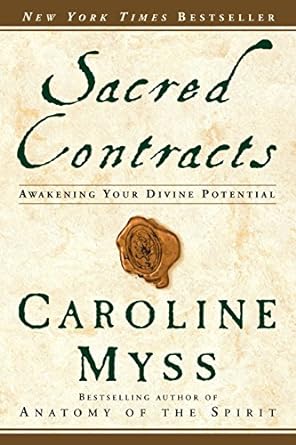
Again, I encourage anybody. If it’s something that’s being suggested to you, don’t dismiss it. It’s not something you need forever, which is a false understanding that I had. I thought, “Well, if I start this, I’ll never be able to stop, and I don’t know how it’s going to change my brain chemistry, and I need every neuron here to figure out what I’m doing next.”
That was seven years ago. I’m back to my base. It’s not something I need right now, but I’ll be much quicker to accept it if I need it.
Would you consider something like postpartum depression to be ambiguous grief or not? And why?
Gosh, great question. I’ve never been asked that. You’re going to hear me think this through in real-time. Postpartum depression is not the loss of a loved one or an identity, but a very real experience, I can tell you, as a mother of three. Postpartum depression is a very real experience. On some level, it may present in the same way.
But isn’t it a loss of an identity of the person who was free to go and watch a movie in the theater whenever she wanted, or to take a long bath and not have to worry about children, what was going on in the house, just have that mental space, and so forth? Isn’t that part of who they were and that they’re no longer?
Yes, that part is true. However, my understanding of postpartum depression is that, and I’m going back 20 years to remember my own, it is chemical. This is a chemical imbalance in your brain, in your body. It’s psychological, physiological, and onset post-pregnancy.
Getting those hormones regulated may be part of the root cause of why you’re feeling all of these experiences. We may have some wistfulness for what was, but with ambiguous grief, again, hope presents, and I don’t need that that’s there with postpartum.
Yeah. I understand what you’re saying that there’s a physiological situation with hormone imbalances and so forth, and there is a spiritual root cause to every ailment, every disorder, disease, chronic pain, etc. What do you think the spiritual root cause is with postpartum or maybe just your postpartum that you had 20 years ago? What would be the spiritual root cause of your marriage breaking apart?
The idea around sacred contracts is that our souls are in a relationship with other soul families prior to our incarnation here in the earth school.
I think the answer is the same for both and different for everyone, which would be whatever your sacred contract is. I learned the term Sacred Contracts from Caroline Myss, who wrote a book about it. I read this book six years ago and felt a real kinship with it. I just felt like, “Oh, okay, that makes sense.”
The idea around sacred contracts is that our souls, that part of ourselves that is always infinite, are in relationship with other soul families prior to our incarnation here in the earth school. When we are not in our physical form, in our soul form, not in this body, we’re talking with others, in relationships with others, and helping one another with the goal of leveling up.
I can only speak to my experience, which I better understood through Caroline’s book, Sacred Contracts, and my Ayahuasca experience. That is that, “Oh, okay, this was part of the sacred contract.” If we’re holding that up next to the spiritual cause, the lack, or what’s happening spiritually, I would say it’s resistance to that sacred contract. It’s forgetting about the sacred contract and working against it.
Yeah. It’s like there’s this agreement in the nonphysical, the other side of the veil. Before you incarnate, you decide together that, all right, we’re going to be soulmates for a period of time, or we’re going to be partners for a period of time, but it’s not going to last.
You’re going to get all these wonderful lessons, I’m going to be the “villain” in your movie, and you’re going to probably forget that we made this agreement. It’s for everyone’s highest and best good, especially yours, and I’m willing to do this for you because I love you so much. And it will lead to you being a real basket case for X months or years. You’re going to move on, and you’re going to have this wonderful lesson. That is the concept of sacred contracts, correct?
Yes, exactly.
What happens when everyone forgets their sacred contracts? Then everybody’s lost trying to walk around in a dark room, bumping into everything. How do you find that light? How do you reveal to yourself and to, perhaps, the other people in your life who are the supporting actors in that movie?
When we're open to new perspectives, removing blocks, and adopting a different lens in which to see the world, then everything we experience takes a new shape. Share on XIn my experience, those supporting actors may not speak the same language. When we’re bumping around, we don’t have this language ourselves. It’s like the beginning of being born. It’s the beginning of your life if you think about it as the next part of your life.
You’re bumping around and don’t have the language you need. You don’t know who your caretakers are. The people you’ve depended on and by whom you’ve identified yourself are no longer present as they once were. “How do I even trust this world? Who am I in this world without this identity or this person?”
It sounds so basic, Stephan, but the very first thing we can do that helps ourselves is to tune into our breath. If you are feeling you are bumping around, and maybe you don’t even have a loss to point to, but if you just feel like a plastic bag in the wind, if you just feel rudderless and alone, or you just don’t feel direction, just get in tune with your breath.
I’ve been doing breathwork for seven years. My first step was to get quiet, breathe, and tune into myself. Breath by breath, we will come back to ourselves. Not the selves we once were right. You’re not the Stephan you were in your marriage how many ever years ago, nor am I, but we come back to ourselves as coming back to our soul. We’re continuing on that path of higher consciousness and continuing to understand. The pieces just seem to fit.
The very first thing we can do that helps ourselves is to tune into our breath.
If we can trust that unfolding, which has been such a delightful surprise of this experience for me, is that I’m no longer rigid in my planning, or “It’s done this way, and we’re going to do it this, this, and this.” I’m a high-achieving firstborn, typical. But instead, I’m like, “Huh, let’s see how this goes. Let’s see where this unfolds.”
Once in a while, I am so freaking tired of practicing my patience, and yet I know that what is happening is for my greatest and highest good. This is an opportunity for me to practice my patience and level up. We don’t always have to like it.
This is the difference between external hope and faith and trust in God that everything is always working out for us. “This is for my highest and best good. I don’t see it right now because I have this myopic viewpoint, but I can pray for more faith and trust and get a wider view to increase the aperture on my lens so that I can make sense of this.”
You don’t have to make sense of it if you have enough faith and trust already, but if you get that gift from above of the wider viewpoint like I see why that happened, it is perfect. You can’t connect the dots except by looking backward.
If you’re looking at all those dots, it finally falls into place and makes sense. It is such a gift. For me, it fills me with gratitude. I practice something called ‘challenge gratitude,’ but it’s something I learned from my sister-in-law that she learned from Rabbi Shalom Arush, who wrote a book called The Garden of Emuna, which means faith.
It’s this that you write down your challenges, and you thank God for them because you know, trust, believe, and have faith that these are for my highest and best good. This is an incredible gift. Reflecting on that while you’re gratitude journaling leads to some real epiphanies, especially if you have the intention of seeing that wider viewpoint, too, so that you get a glimpse of the bigger picture.
Setting an intention is a really good way to tether.
You’re not going to see the bigger picture altogether, but you’ll get these glimpses because that’s the nature of the game, the video game or the movie. You don’t want to know all of the cheat codes ahead of time. You don’t want to know the plotline of the movie by reading the Wikipedia page before you go to the theater. Why would you want that in your life? You want its surprise and the seeming spontaneity of it.
Right, which is real. I agree with you. I’ve been in conversations and relationships with plenty of people who would be terrified by that notion because it sounds very scary and dangerous. We can understand why that is their narrative and inner dialogue, but the root of that is a lack of trust in the unfolding. Why make ourselves anxious and afraid? Instead, let’s trust the unfolding and go see what the movie is about. Walk through it.
That roundabout you talked about reminded me of what I learned from Dr. Daniel Amen, a guest on this podcast, about the diamond pattern in our brains. It’s not in everybody, but when you have a certain level of activity in these four areas of the brain that forms this diamond-looking pattern, essentially, you’re looping. You’re ruminating over and over again the same thing. “Maybe I could have done something different. Maybe it could still work out,” and then round and round we go.
Yup, external hope. I’m going to have to look into that diamond pattern. I follow his work. You mentioned a prayer earlier. One of my favorite prayers at this time is “show me.” When I’m feeling like, “Well, this doesn’t make any sense, or this is a plot twist, I didn’t see this coming in my video game and my movie, okay, show me.”
What I recommend people do, which is the first tool I offer in the book, is setting your intention. When you’ve gathered your breath, you can look at your experience and understand that this is happening, and you’re not living in denial. Setting an intention is a really good way to tether.
Trust that the people who need us will be presented in our lives, and the people we need will be presented to us in our lives. Sometimes you have to be patient.
Intentions change and shift. You’re not picking one intention for the rest of your life, but it’s an intention. I set an intention before we came into the conversation to clear my mind and be fully and actively present in our dialogue. That is my intention to be my authentic self.
When I go about the rest of my day, I might set different intentions. There are long-term intentions. “How do I want to intentionally parent? How do I want to be in a relationship with my partner with intentionality?”
We can control our intention, and that’s something Epictetus would say, “Yeah, good job, you can control that, so do that.” We can control our intentions but don’t know what’s coming, so show me. Trust that the people who need us will be presented in our lives, and the people we need will be presented to us in our lives. Sometimes you have to be patient.
Yeah. That’s not that dissimilar to another statement I learned or questioned. I learned this from my Kabbalah teacher and coach. His question that I use all the time now is, “Why is this in my movie?”
Right, that’s terrific. The answer will reveal itself if we’re open.
I get it because I’ve developed or been gifted with clairaudience, and I’ll receive it mostly as words coming from my inner voice, so they’ll answer me.
Outstanding. I had that experience in writing the book, where I would sit, not knowing where to go from here, from a certain point. Again, when we’re open to receiving, we are antennas. If we’re able to get in the space of removing those blocks, removing those beliefs, and adopting a different lens through which to see the world, then everything takes a new shape, and things start finding their way like puzzle pieces to us.
There are so many movies that we can point to that give us lessons about our movies. One of them that was recently gifted to me or shown to me was Pleasantville. I saw that decades ago. I was nudged to watch it again. My wife, Orion, and I watched it. It was profound. I had no idea. Did you see that movie?
So long ago. I do remember it, though. Right.
Yeah. It started in black and white. Eventually, it morphed into color. This is a metaphor for what we’re going through now, this ascension process from 3D to 5D. Of course, I did not get that when I first saw the movie in the 90s, but I totally got it this time. I’m like, “Now I see why you guys had me watch this.”
Right, that’s wonderful. I’ll be tuning in as well. I write about the Wizard of Oz doing the same thing. Again, black and white to technicolor, and we all have the opportunity to be living in technicolor.
It’s just another way of explaining your metaphor of up-leveling.
That’s right. We have to walk the path; nobody can do it for us, and we all need to find our version of our ruby slippers. What talisman can we hold on to that helps us stay grounded? And what intention can we set and be open to friends of all forms coming to us with lessons of whatever we might need?
With Pleasantville, the thing that you don’t get from the Wizard of Oz metaphor but get in Pleasantville is that some people, by choice, will stay behind. They will fight tooth and nail to stay black and white. You cannot save them, nor are you supposed to. That robs them of their free will.
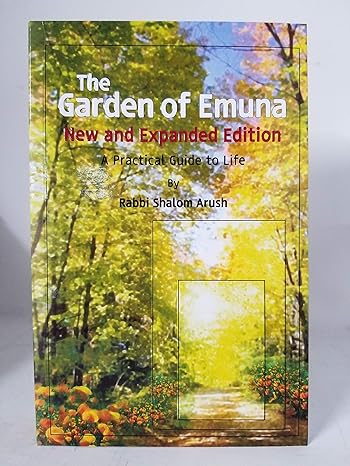
Absolutely. I think this spins people, keeps them on the external hope thinking, “I can help them,” and you’re throwing lifeline after lifeline. This is relevant if you’re involved with a loved one abusing substances. You’re throwing lifeline after lifeline, saying, “Maybe this lifeline is what will help them. Maybe they’re not actively choosing not to move into recovery and begin to evolve. Maybe that’s a subconscious decision. Maybe it’s the grasp of addiction.”
I can absolutely see why some forms of behavior are so deeply rooted in trauma that people would choose to stay behind because facing their trauma and doing the work is more painful. They’d rather be left behind than do the work, in the experience I’ve had in watching those who do stay behind. It might not be a conscious choice for others.
We also need to respect that they have their path, and they chose their movie. We got to meet people where they’re at. If where they’re at is where I want to spiral, maybe subconsciously or unconsciously, they want to spiral even though they say that they don’t consciously. You’re trying to keep throwing these lifelines at them or give them some spiritual pep talk they’re not ready for. If you give them a memento mori coin, or you tell them all loss is an illusion, that doesn’t help them. That further disconnects you from them and disconnects them from their experience.
Right. You’re not producing their movie, and you’re not directing their movie. We’re bit players in other people’s movies. You’re talking about looking at film as a reflection. The fact that Pleasantville came out so long ago, and now you can see it through this different lens, makes me really curious about the people who wrote it.
That’s how I felt when I just watched the Banshees of Inisherin. If you’ve not watched it, I highly recommend it. That is something that kept calling to me. Finally, I said, “Okay, let’s go ahead and watch this.” It doesn’t seem like it would be anything I’m interested in, but what did I know? Again, it’s my own ignorance.
Stephan, it is the first film that I can point to that says, “This is what ambiguous grief is.” We see all the stages. It’s about the friendship estrangement of two men a hundred years ago off the coast of Ireland.
What on earth do I have an interest in watching that? That sounds awful. This movie is getting such rave reviews. I believe it’s not because of the cinematography, the incredible acting, or the costume design, all of which are award-worthy, but it’s because we can recognize on some level ourselves in them in these relationships, either as the one who chose the estrangement, the one who chose to end the relationship, or the one who didn’t want that.
We see all of the cycles, even hope, in Colin Farrell’s character. We are just clinging to hope. He’s on a roundabout with all the consequences of spending too much time in ambiguous grief. The film depicts it beautifully without ever mentioning that that’s what it is. Again, we don’t have words for it.
Trust that life will work out. Embrace the idea that everything you experience ultimately works for your greater good, even when it doesn’t feel that way. Trust the process and be patient. Share on XInteresting. I’ll have to check that out. All right, we’re on time here. If our listener or viewer wants to pick up your book, which I hope they will, it’s Soulbroken: A Guidebook for Your Journey Through Ambiguous Grief. And if they want to work with you, do you offer coaching? How do they learn more beyond the book?
Yes, sure. Thank you. You can find me on my website, which is my name, stephaniesarazin.com. I do grief education work. Working one-on-one or in very small groups with individuals to understand their grief, recognize it, honor it, help people move through it, and understand that it becomes part of us. It’s not something to recover from or get away from; instead, embrace and use it to regenerate.
The book ‘Soul Broken’ has two words on the cover because of the size of the text. It’s one word. If you’re having trouble finding it, you’re likely searching under two words, but one word, Soulbroken, as you would write heartbroken, is one word.

You’ll appreciate this, Stephan. There is a path on the cover if you look closely, which I asked the illustrators to add, which just pays homage to the idea of our path work, our path, and toward healing. You can find me on social media: Instagram, LinkedIn, and other formats.
Thank you so much, Stephanie. You’re a light in the world. What an important book you’ve written, and what an important work you’re doing in the world. Thank you—best of luck in your unfolding journey.
I appreciate it. The light in me sees the light in you, Stephan. Thank you for having me and for the important work you’re doing to bring these conversations to others. Thanks so much for having me.
Thank you. Thank you, listener. You are a light in the world, too, so make it a great day. We’ll catch you in the next episode. I’m your host, Stephan Spencer, signing off.
Important Links
Connect with Stephanie Sarazin
Books
Films
People
Previous Get Yourself Optimized Episode

